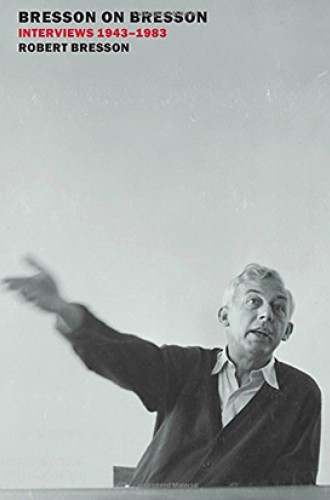Improvising the music of daily life
Robert Bresson’s films are adventurous, brooding, and deeply religious.
This collection of interviews with the great French filmmaker Robert Bresson contains much for anyone interested in film or faith. Bresson, who died in 1999 at the age of 98, was one of the most important (if not most influential) directors of the last century. Born, raised, and educated a nominal Catholic near Paris, he began his career as a painter and photographer, immersed in the arts scene. During World War II, he spent a year in a Nazi prisoner-of-war camp. After the war, he turned to making films.
Bresson became famous for his techniques. While filming his first picture, he noticed that the actors he’d cast “suddenly ceased to be people” while acting. Henceforward, he hired men and women “who didn’t act”—who were amateurs, or, as he preferred to call them, “models.” He wanted them to know almost nothing about a film before shooting began, and once it began he wanted them to remain themselves rather than attempt to embody a character.
Bresson’s films revolved around sin, shame, passion, and redemption. These themes were embodied in characters that included a depressed provincial pastor, taken from a Georges Bernanos novel, the misunderstood saint Joan of Arc, and a man struggling against evil, pulled from a short story by Tolstoy. Balthazar, at Random (1966) tells the story of a donkey, as inspired by Dostoevsky’s The Idiot. (You can watch the amazing two and a half minute final scene online.)






